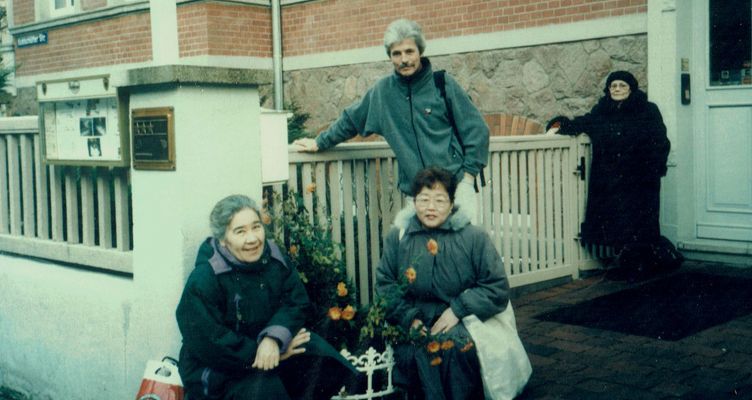Bicultural Education in the North

Bicultural Education in the North
Ways of Preserving and Enhancing Indigenous Peoples' Languages and
Traditional Knowledge
Franckesche Stiftungen zu Halle/Saale, December 13-15, 1997.
Symposium convened by Erich Kasten,
with financial support by the Volkswagen-Stiftung, Hannover.
Edited volume: Bicultural Education in the North
This symposium is about the cultural diversity of the peoples of the North, and how this can be maintained and enhanced in the future. Anthropologists and ethnolinguists – as well as educators and those involved in politics from Native communities in the North – contribute to the current state of the debate on this issue. This may give us clues and insights into both theory building and the implementation of relevant community-based educational practices. At the outset it is emphazised that indigenous needs and global responsibilities make the maintaining of cultural diversity a matter for all of us. Some contributors call attention to the need to work for adequate social, political, and economic environments, so that cultural and linguistic diversities can continue to thrive in the future. But most importantly, our view is directed to the educational process itself. These themes are further elaborated in various case studies, which focus on Siberia and the North Pacific rim but provide comparative views from other regions as well.
Bicultural Education in the North
Ways of Preserving and Enhancing Indigenous Peoples' Languages and
Traditional Knowledge
Franckesche Stiftungen zu Halle/Saale, December 13-15, 1997.
Symposium convened by Erich Kasten,
with financial support by the Volkswagen-Stiftung, Hannover.
Edited volume: Bicultural Education in the North
This symposium is about the cultural diversity of the peoples of the North, and how this can be maintained and enhanced in the future. Anthropologists and ethnolinguists – as well as educators and those involved in politics from Native communities in the North – contribute to the current state of the debate on this issue. This may give us clues and insights into both theory building and the implementation of relevant community-based educational practices. At the outset it is emphazised that indigenous needs and global responsibilities make the maintaining of cultural diversity a matter for all of us. Some contributors call attention to the need to work for adequate social, political, and economic environments, so that cultural and linguistic diversities can continue to thrive in the future. But most importantly, our view is directed to the educational process itself. These themes are further elaborated in various case studies, which focus on Siberia and the North Pacific rim but provide comparative views from other regions as well.
Двухкультурное образование на севере
Bicultural Education in the North: Ways of Preserving and Enhancing Indigenous Peoples' Languages and
Traditional Knowledge («Двухкультурное образование на севере: Пути сохранения и совершенствования языков коренных народов и традиционные знания»)
Антология вкладов: Bicultural Education in the North
На симпозиуме речь идет о культурном разнообразии народов Севера, а также о том, как его можно сохранить и укрепить в будущем. Антропологи и этнолингвисты, а также педагоги и политики из общин коренных народов Севера вносят свой вклад в текущее состояние дискуссии по этому вопросу. Это может дать нам подсказки и понимание как теоретического построения, так и практического применения соответствующих методов обучения на уровне общин. С самого начала подчеркивается, что потребности и глобальная ответственность коренных народов делают поддержание культурного разнообразия делом каждого из нас. Некоторые авторы обращают внимание на необходимость работать над созданием адекватной социальной, политической и экономической среды, чтобы культурное и языковое разнообразие продолжало процветать и в будущем. Но самое главное, наше мнение направлено на сам образовательный процесс. Эти темы получили дальнейшее развитие в различных тематических исследованиях, посвященных Сибири и северной части Тихого океана, но в то же время содержащих сравнительные данные из других регионов.
Symbolbild auf Detailseite verwenden: not checked
